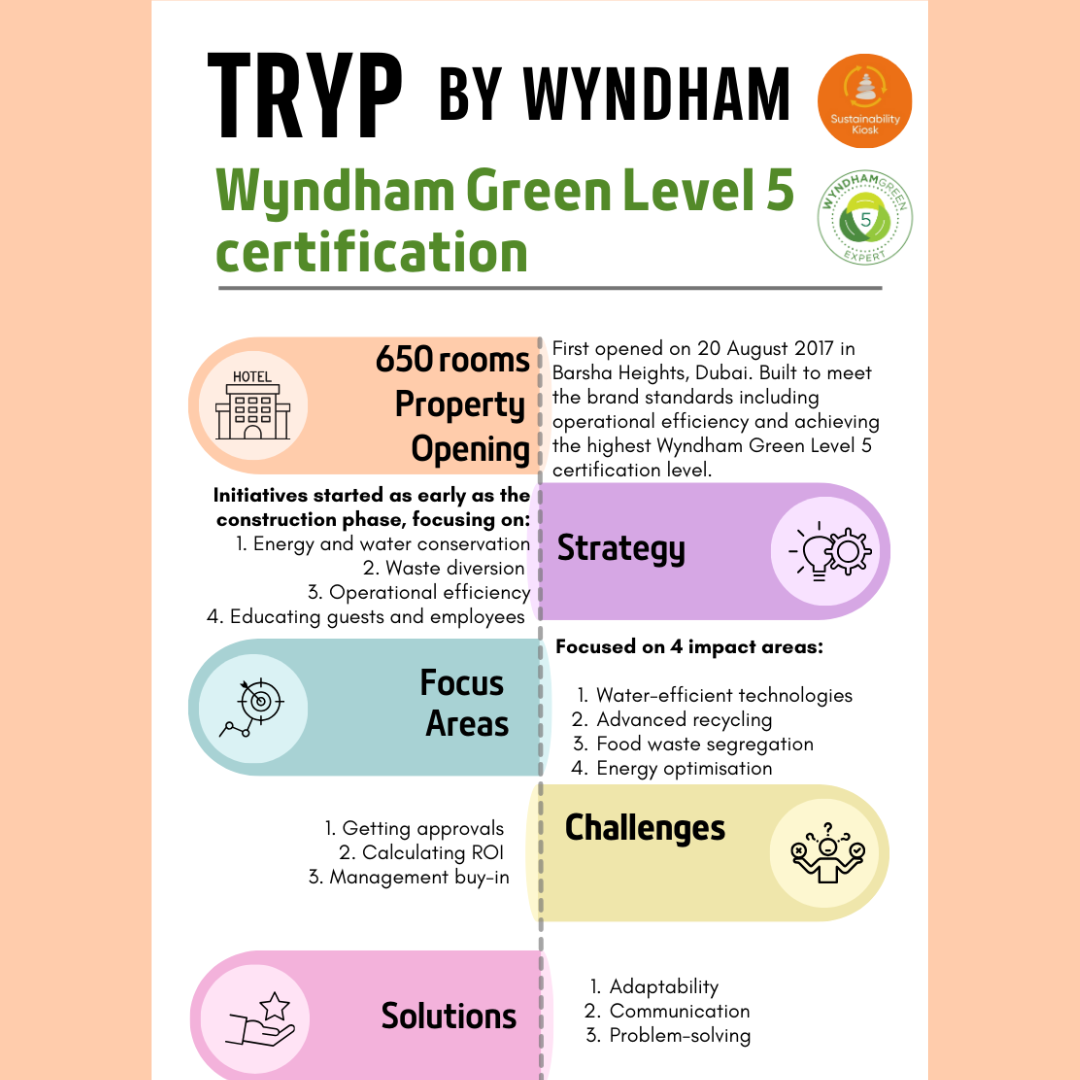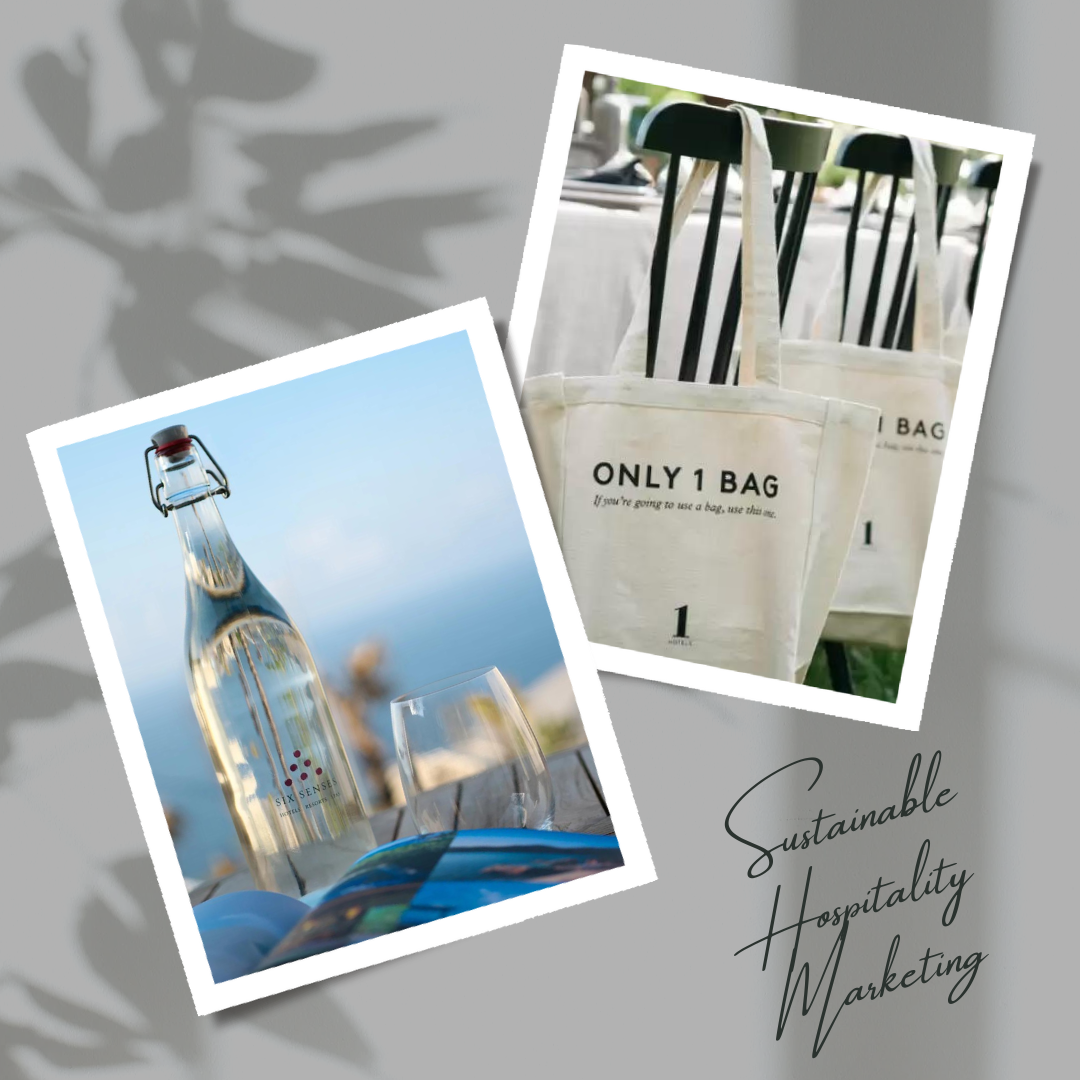Imagine a travel industry where experiences coexist with environmental responsibility. This dream isn’t far-fetched; it’s the future of hospitality. Carbon-conscious practices minimises hotel’s environmental impact through sustainable practices, significantly reducing carbon emissions
The Environmental Footprint of Tourism:
Tourism has a significant environmental footprint. Hotels are major consumers of energy and water and generate significant waste if not managed efficiently.
Key Findings Highlight:
- Energy Usage: Hotel as living buildings consume energy and are carbon-intensive. It is also estimated, 30% of energy in a building is wasted (Think Planet, Raddison Hotels).
- Water Usage: Tourism can use 8x more water per person than the local population1
- Food Sector Impact: Accounts for 30% of global energy consumption and 22% of greenhouse gas emissions during food production and decomposition2
- Carbon Emissions Reduction: A 66% reduction in carbon emissions per room by 2030 is necessary for sustainable growth.3
Championing Carbon Reduction
Hotels can become champions of change by focusing on the four following strategies:
1. Designing for Efficiency:
- Prioritize efficiency from the start with energy-saving features embedded in design, high-efficiency cooling and lighting systems. Water-saving controls and thoughtful interiors further contribute to sustainability. Furniture, fixtures, and equipment (FFE) should be chosen with a “cradle-to-grave” mentality, ensuring their environmental impact is minimized throughout their lifecycle. This reduces the embodied carbon inherent in buildings.
- Invest in renewable energy: such as on-site solar or wind power, to reduce reliance on fossil fuels. Hotels using renewable energy have reported reductions in energy costs by up to 40% (Source: UNWTO, Analysis on energy use by European Hotels, 2011)
2. Resource Conservation Measures:
- Focus on Energy Efficiency: Explore our shop section with a mission to list solutions across energy, water, waste, consumables to support with emissions reduction, look up shop to explore strategies for emissions reduction.
- Water: Implement low-flow faucets, toilets, smart irrigation systems and linen reuse programs. Example of Whitbread Hotels, adopting these measures to reduce water usage up to 20% by 2030.
- Waste: Reduce waste generation, increase diversion from landfills, and reuse materials. This can include using bulk amenities instead of small bottles, monitoring food waste to identify areas for reduction, and use biodegradable alternatives. Our with Anantara The Palm Dubai Resort, has shown waste diversion rates of 67% away from possible, making reduction and recycling a possibility. You can look up “Why Waste, and Why a Waste Audit? to know more on strategies to reduce waste, and the recipe for success.
- Sourcing Smartly: Partner with local farms to minimize transportation emissions. Encourage partners to minimize waste as well, by reusing delivery containers and participating in take-back programs whenever possible. Extend your thinking to the supply chain impacts overall emissions. “Cradle to Grave” consideration is imperative.
3. Educating Guests:
- Inform guests about sustainability initiatives and offer ways for them to participate. Six Senses Hotels Resorts Spas involves guests in their sustainability programs by providing educational materials and interactive experiences, such as guided tours of their on-site organic gardens and waste management facilities. Or use the use of tech like Klimato (Carbon labelling of foods) or GLS Media (for seameless guest communication) listed on our shop.
4. Certifications and Operational Efficiency:
- Obtain sustainability certifications to demonstrate commitment and access green funds. Use the quick link to compare and review the various certification programs. Hotels with certifications such as LEED or Green Globe have seen up to a 15% increase in booking (Business Case for Sustainable Hotels, 2020, Sustainable Hospitality Alliance).
- Maintain operational efficiency through regular asset maintenance to support decarbonization.
FutureProofing Your Business:
As environmental regulations tighten worldwide, embracing sustainability ensures compliance and avoids potential penalties. Additionally, operational efficiency can lead to significant long-term cost-savings and boosting your bottom line.
To ensure you are ticking-off all the right tools and procedures, following a framework helps in guiding the business for the Net Zero goal. We recommend you lookup World Sustainable Hospitality Alliance, Net Positive Hospitality and speak to us to support adopting it.
Carbon-conscious hospitality is not just about environmental responsibility, it’s about smart return on operations and the hotel asset return value.
Sources:








